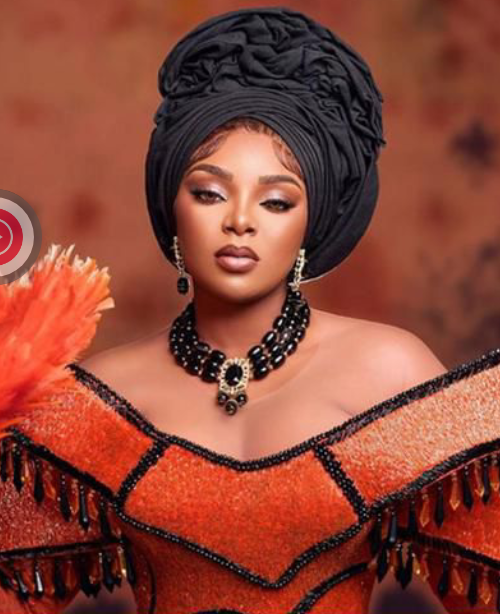
BBNaija’s Queen Challenges Pastor Kingsley Okonkwo Over Controversial Take on Men Providing for Women

The Nigerian social media space has been set ablaze once again as Big Brother Naija star, Queen Mercy Atang, popularly known as Queen, publicly disagreed with popular relationship and marriage counselor, Pastor Kingsley Okonkwo, over his recent statement suggesting that the idea of men providing for women is more cultural than biblical. The exchange has sparked a heated debate across platforms, drawing reactions from fans, religious faithful, feminists, and social commentators, as it touches on the sensitive issue of gender roles within marriage, financial responsibility, and the interpretation of scripture.
It all began when Pastor Kingsley, who is widely respected for his marriage teachings and sermons, shared his perspective that the responsibility of provision in a marriage is not expressly commanded by the Bible but is largely shaped by culture. He argued that biblical roles emphasize love, leadership, and partnership, while culture has placed the full burden of financial provision on men. This perspective, though resonating with some who believe in shared responsibilities between partners, did not sit well with many, particularly women who feel the traditional role of the man as provider is clearly outlined in scripture and cannot simply be dismissed as cultural.
Queen, who has never shied away from expressing her views on social matters, took to her platform to pen a respectful but firm response to the pastor’s statement. In her open note, she began by appreciating Pastor Kingsley for the impact of his ministry on her life, acknowledging that his marriage sermons have been a source of guidance and blessing to her. However, she stated that on this particular issue, she found herself in strong disagreement with his interpretation. Quoting directly from scripture, she referenced Ephesians 5:23, which says “the husband is the head of the wife,” and 1 Corinthians 11:3, which affirms the order of authority with the man as the head of the woman. She further cited Genesis 2:18, where God declared that it was not good for man to be alone and thus created a helper suitable for him. To Queen, these passages make it clear that the man bears the greater responsibility in the home, including provision, while the woman is meant to support and assist, not to carry the entire burden.
In her words, “A helper is meant to support, not to carry the entire burden. She is there to assist when things aren’t going well, not to shoulder every responsibility in the home. To me, this is quite self-explanatory.” Queen expressed her concern that such teachings, even if unintended, could create a shift in marital dynamics, where men feel less obligated to provide for their families while women are increasingly pressured to step into the role of provider. She argued that many women are already carrying the weight of financial responsibility, often against their will, and a message like this could reinforce that imbalance instead of correcting it.
The reality of many Nigerian households reflects Queen’s point. With the economic downturn, rising inflation, and unemployment rates, women are increasingly stepping up to provide for their families. In some cases, women have become the primary breadwinners, a role reversal that has triggered both admiration and criticism within cultural and religious circles. For some, this is seen as a practical necessity in modern times, but for others, it is a worrying departure from the biblical order of marriage.
Queen’s response, though respectful, carries undertones of frustration at what she perceives as a growing narrative that downplays the man’s responsibility in the home. Her letter, ending with “With love and respect,” made it clear that her intention was not to attack Pastor Kingsley but to offer a counterpoint rooted in her own understanding of scripture and lived reality.
The response has since gone viral, with fans and social media users flooding comment sections to take sides. Some have hailed Queen for speaking truth to power and defending the biblical principle of male responsibility, while others have accused her of clinging to outdated gender roles that no longer fit the realities of modern relationships. “Queen said what needed to be said,” one supporter commented, adding that many men already look for excuses to avoid responsibility, and such teachings could arm them with spiritual justification. Another user, however, countered, “This is 2025, not the Old Testament. Men and women should share responsibilities equally. If women want equality, then they must also share the bills.”
Pastor Kingsley himself is yet to directly respond to Queen’s remarks, but the discourse has reignited long-standing debates about the intersection of culture, scripture, and modern marriage dynamics. While some argue that the Bible prescribes the man as provider and leader, others interpret those verses as symbolic of leadership rather than financial responsibility. The cultural dimension cannot also be ignored, as African societies traditionally expect men to provide while women focus on nurturing and homemaking. However, with the realities of economic hardship, dual-income households have become the norm rather than the exception, and the lines of responsibility are increasingly blurred.
The debate also reflects a broader conversation about feminism, gender equality, and religion in Nigeria. For some women, the expectation that men must always provide is not only biblical but also protective, ensuring that women are not overburdened. For others, however, clinging to these traditional roles undermines progress towards gender equality and fails to recognize women’s capability to contribute meaningfully beyond the domestic sphere.
Queen’s stance has sparked admiration from many women who feel seen and heard, particularly those who struggle under the weight of being both provider and nurturer in their homes. Her insistence that the man should not abdicate his “God-given” role resonates strongly with women who believe that a healthy marriage requires balance, where the man leads and provides while the woman supports and complements.
The exchange between Queen and Pastor Kingsley also highlights the power of celebrities in shaping public discourse. While pastors and religious leaders hold significant influence in Nigerian society, celebrities like Queen, with their massive social media followings, now have platforms to challenge and question interpretations that may not align with their beliefs or experiences. This clash of influence is reshaping how conversations about faith, culture, and gender unfold in the digital age.
As the dust settles, one thing remains clear: this debate is far from over. The question of who should provide in marriage—whether it is strictly the man’s duty, a shared responsibility, or a flexible arrangement depending on circumstances—will continue to dominate conversations in homes, churches, and online spaces. Queen’s respectful but firm disagreement has not only sparked a fresh round of dialogue but has also forced many to reflect on their own beliefs about marriage, provision, and scripture.
For now, Nigerians will continue to dissect, argue, and analyze this exchange, with some siding with tradition and scripture as Queen interprets it, while others lean towards a modern, egalitarian approach as Pastor Kingsley suggests. But one undeniable fact is that this conversation has once again brought to the forefront the delicate balance between cultural expectations, biblical interpretations, and the evolving dynamics of modern relationships in Nigeria.


